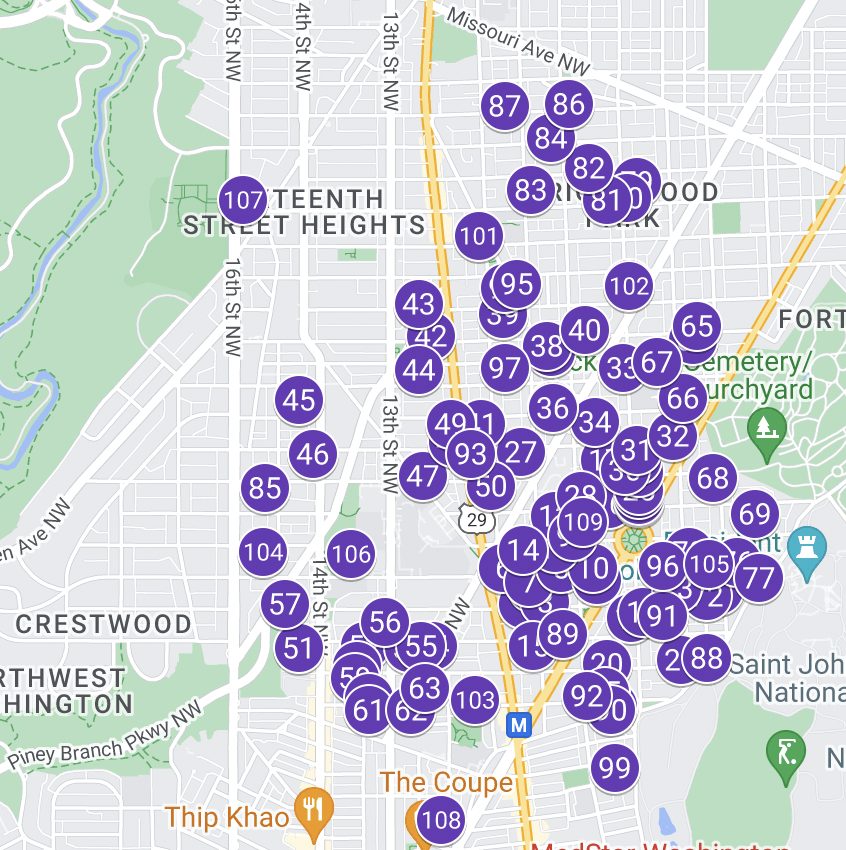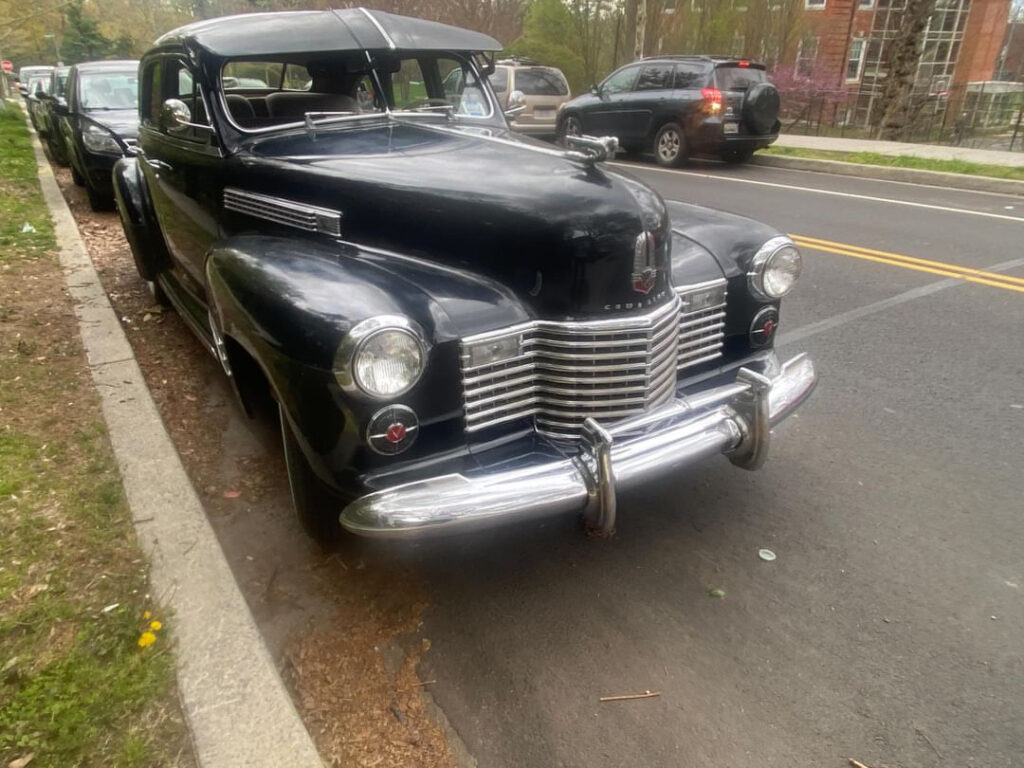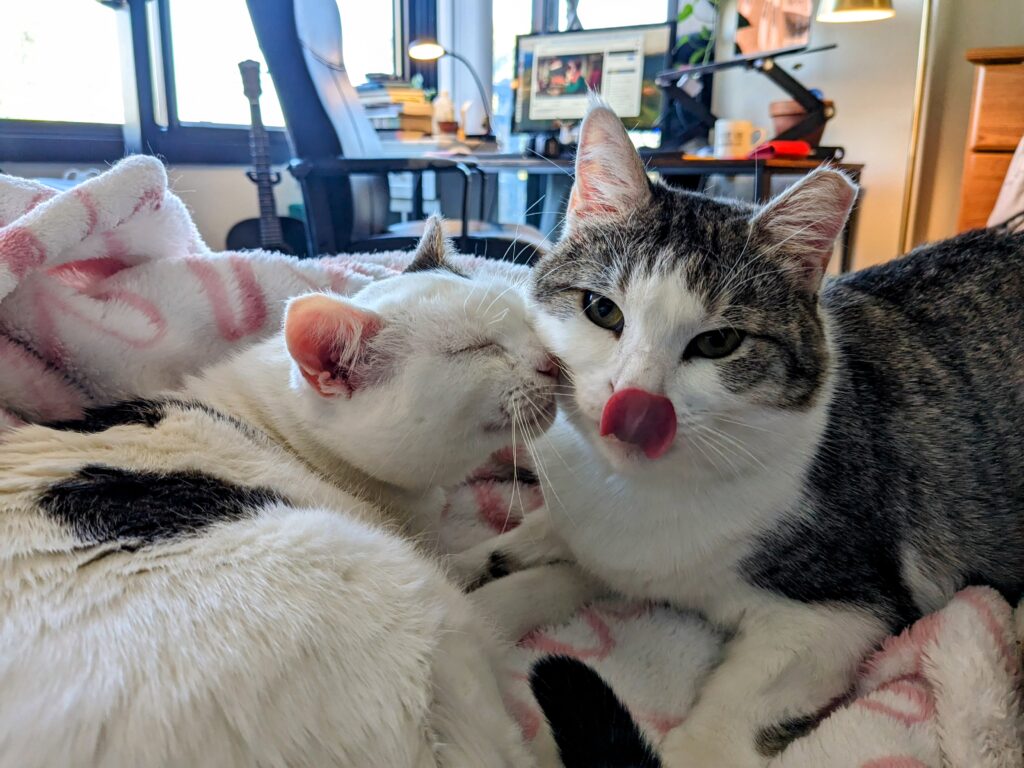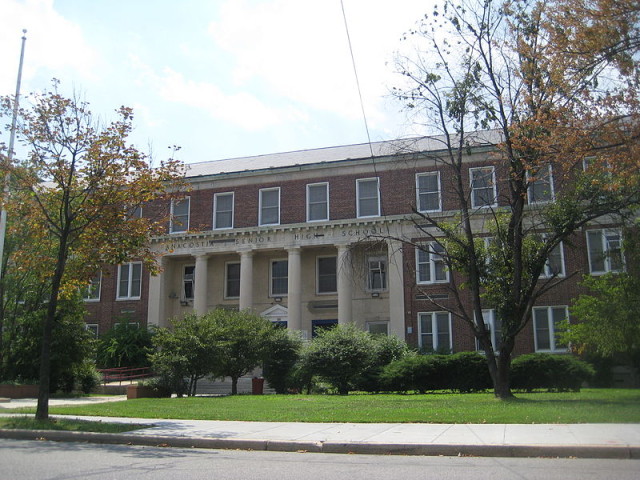
Anacostia High School
Anacostia Voices is written by Paul Penniman. In 2003, Paul founded Resources for Inner city CHildren, RICH, which provides tutoring and mentoring services to Anacostia High School and the Cesar Chavez Public Charter School-Capitol Hill.
Hi everyone,
It’s close to the beginning of school, so I thought it might be enlightening to talk to three teachers who began their math teaching careers together at Anacostia High School in 2009 but who all left either in 2012 or 2013. Jack left after four years to go to graduate school; Abe left after four years to join the HEROS program at the DC College Success Foundation; and Ryan left after three years to continue teaching, but at a charter school elsewhere in D.C.
It should be noted that these three men had largely a negative experience and left, and their thoughts reflect that. However, Anacostia High School had a very high retention rate for teachers from last school year into this school year, over 80%.
This is a transcript of my conversation with Abe, Jack, and Ryan.
Paul: When you first came to DCPS, you didn’t know much about Anacostia except what you’d read? Or DCPS?
Abe: I lived in Maryland, I knew what I was getting into.
Paul: You guys were not math majors, right?
Ryan, Abe, and Jack: Correct
Paul: So was there anything particularly difficult about anything you taught, subject-wise? Did you feel like you were having any trouble just teaching, or understanding the math yourself? Did you feel like you were well trained? Or smart enough to figure everything out?
Ryan: I was teaching Algebra my first year. I thought it was pretty easy. I think that there were some things that I wouldn’t have known even if I was a math major, more pedagogical things that I didn’t realize until I taught it again, a third or fourth time so in terms of training, I don’t think we got sufficient training but I don’t think we would have gotten it anywhere.
Paul: Was the training you got just to refresh your math skills?
Ryan: It was for the Praxis [a test of high school math proficiency]. I didn’t really gain any more knowledge. I got refreshers but I didn’t gain any more knowledge from it. Some people did, but I personally didn’t.
Jack: We had two trainings. The first training was just math training and that was to take the Praxis and pass the Praxis. And the second training was teacher training, and that was like how to teach. That was five or six weeks. That was like TFA [Teach for America] except not as intense. Like we worked eight hours a day and you’d have to work more than that [for TFA].
Ryan: I think that what happens a lot, as a novice teacher, you, well, I had thought teaching and knowing were synonymous when really teaching and knowing are two separate things. Like you can know it but it’s harder to teach something. I knew the math but my problem was actually teaching it, especially to kids who are all on different levels of math in general.
Abe: I agree and I still struggle with that.
Jack: I think we all struggle to this day.
Paul: Can’t you just blame the students if you have trouble explaining something? (laughs)
All: (laugh)
Paul: What was one of the biggest surprises or difficulties that you had in the first week or two in the classroom? Something you didn’t expect or . . .
Ryan: For me personally, for the first week or so, it was how easy it was.
Paul: Were you in the Matthew Henson Academy [for students were older and behind in their credits] then?
Ryan: No, I was transferred to Matthew Henson a month in. Over the summer they tell you all of these horror stories about all these things that happen to you and you’re mentally preparing for this stuff. And then that first week it was not that bad but that’s only because the kids themselves–I didn’t know this at the time but–the kids themselves were kind of getting accustomed to you, being nice that week. It was the following week that really killed me honestly. They’re just testing the waters the first week but I wasn’t aware of that. So I was like, “man, my kids are great! I love them all. They’re great! They’re so nice, they’re so obedient!” And then the following week is when they really show their true colors.
Abe: These two guys [Ryan and Jack] were in the ninth grade baby academies. Day one, the kids were crazy for me. I got a pencil thrown at me. I was in tenth grade, so they had already been there for a year, they were a mess. I knew what it was going to be like but I had never commanded a classroom of more than five or six kids so when I had classes of ten, fifteen, twenty, I wasn’t prepared to deal with all the little misbehaviors that were going on. And so I really struggled with that.
Jack: I remember my very first day. The behavior was really good for the first two weeks, I agree. It was the honeymoon period as we called it and then all of a sudden it stopped. So I taught first, second, and fourth. My first and second periods I would ask kids to read from the syllabus and they did. My fourth period I asked [a student], who I didn’t know at the time couldn’t read, “can you read something” and he was like “ugh meh ugh.” So I said “Um, I asked you to read something!” (laughs) He’s like “I don’t want to read it! I don’t want to read it.” So I was like “Okay…moving on we’ll discuss this later” but then I found out that he just didn’t know how to read so that was I guess shocking for me in many ways that a ninth grader did not know how to read. I learned my lesson to never ever do that again before I know somebody.
Paul: That reminds me of when [RICH] dropped in for the first time, I think it was the end of October, early November. It happened to be a morning that Mary Young [the principal] had made breakfast for everybody at Matthew Henson. And I thought, “oh that’s so nice that DCPS is providing this for everybody.” I didn’t realize until later that Mary was cooking all this food. So we were there at 8:30 and there were about 20 teachers eating this nice breakfast and I was addressing the teachers and it was actually not a bad time because nobody was distracted by anything but their food and we basically said, “Well what do you guys need?” A teacher said “well we have about a dozen kids who are reading at a kindergarten or first grade level.” And I said, “Oh!…” so that was the big shock for me.
But getting back to you guys: I never noticed any of you guys lose your temper on the kids, which I was always really impressed by. I always had a much worse temper [teaching in private school in the 1980’s]– I yelled all the time, and that was actually not an unusual behavior for a teacher. I didn’t call any of the kids’ names, but it seems like most of my colleagues did their fair amount of, you know, semi-abusive things. How did you all keep your composure? Were you trained that way? Or were you just very nice people? I observed Jack, who had a calm way of saying “If you don’t do this, this is going to happen.” Not yelling or pissed off. You, Abe, would come over to a person and just speak very quietly for what seemed like an interminable length of time! You just explained very gently, and the kid was fine. And it didn’t really matter what the class was doing because you were really focused on one kid. If you could get that one kid to reengage, then you could get the class back together. Where did all this patience come from? Did it come from yourselves? Did it come from advice you were given? Did you have good models?
Abe: My first semester I did some yelling and it was always worse after I yelled; it never got better. Dr. Williams, who was the quietest, never yelled, pretty nice guy, didn’t really have an issue with classroom management. So I talked to him and his advice was just like, “Just be calm, and if you are calm, they will be pretty calm.” So when I changed that and I tried to have better relationships with them instead of yelling and getting upset with them, I got better results. So then I just kept that strategy.
Jack: I totally agree with that. I have had a calm demeanor for most of my life but then when I started teaching it really was tested and made me yell at the students, but that only made things worse. I remember in my first month of teaching I had to take this student out – [R] Johnson. We all taught this student. I didn’t know any better at the time and he was getting really frustrating so I took him outside and I started yelling at him and started getting so angry at him and so he took it and said “fine”. And when we walked in he was even worse. He started throwing things and getting confrontational with kids. I noticed that when I yelled, the kids kind of feed off that energy where as if you don’t yell and if you are not angry all the time the kids really do feed off that energy as well and it is very hard to keep that. I think that just comes with teaching: you have to be positive and energetic all the time, even when you have to fake it and that really is what keeps kids calm in general. Even when you don’t feel that way, that is what you have to do. That is what I had to do and what I have been doing.
Ryan: Whenever I yell kids would laugh. That pissed me off even more, and I would just get worse, and then it was just bad. I can’t say that it didn’t happen, even in my third year! There were just times when it got that far but it was always terrible, always a terrible result. 100% of the time.
Abe: My first year of teaching I really was keyed in to only building good relationships with the kids. It got to the point where I got really buddy-buddy with the kids and then it was great at first but I paid for that in the end because the kids will just run all over you if that is the case. So it was really that first year was just creating that boundary where you create that relationship and let it be positive but also let them know that you are the teacher and not really caring if they did like you or not because at the end of the day you are there to teach them at the end of the day that is all that matters. I didn’t really put that as high or important in my first year.
Ryan: I wish that we had somebody, or we had each other to talk about these kinds of issues. We all attended seminar class together to get our certification so we have known each other for four years (since June of ’09) but we never really talked about the classroom management piece or the building relationships with kids piece because there is such an art to it. You, Abe, were saying how you can build relationships but they can take advantage of you, but I was too strict, and didn’t build the other side of the rapport as well. So I wish we could have bounced ideas off of each other about that.
Abe: I wish I had had that support. I felt like I was on an island by myself. Where I was teaching there wasn’t much collaboration emphasized so I just felt like I was by myself, I was just in it by myself.
Ryan: Those first four weeks were the worst. They felt like an eternity.
Paul: Tell me about your relationships. With other teachers and with students. Is that something that you enjoyed or didn’t get enough of? Are there any that you are keeping up with or hope to keep up with?
Abe: I think that we have developed relationships with a few kids, like I’ve developed relationships with “It’s Academic” kids and with kids from my first year that really look to me as someone that they can trust. If you can change one kid then you’ve done your job essentially – I don’t think we’re in it for the numbers.
Ryan: I think initially you are though. You see those movies and are like “man those guys changed like a classroom with like thirty kids! I’m going to do that too! I’m going to go change thirty kids!” And then a week after that it’s like “I’m going to change fifteen!” and then a week after that it’s like “I’m going to change two!” and then after that it’s “Oh…my…god… I just want to change one kid! All I need is that one kid!” But the thing is, if you change that one kid, it’s really an indescribable feeling – knowing that you had an impact on a kid in a positive way. I think that is a lot of what teaching is about. It’s being there for that one kid and showing that kid the way. With teachers: We really are forced to mature really fast, out of college. And I didn’t realize that until I talked to my friends, other friends from college who had their jobs and were still going out on Tuesday nights you know? But I think the fact that we were all forced to mature so fast is why we have formed such tight bonds with other teachers.
Abe: Having relationships with the kids was my favorite part of teaching. It was the only part I liked. Unlike grading math… and stuff. Coaching was helpful with that and the snowboarding team was big in that (it was better last year). But some relationships it was more like a friend, others it was more like an older sibling, others it was a straight math teacher. But having relationships with a lot of kids (some were better than others) was my favorite part. The math part of lesson planning and grading and teaching math I always hated. But the part of knowing and working with the kids and establishing relationships was my favorite part.
Paul: So it all came naturally to all of you – you didn’t have to try hard to build relationships and no one had to show you how to do it.
Abe: No, I had to learn. With some kids it’s really a lot harder than others. Some kids naturally wanted to have a positive relationship with you but others just naturally… don’t. You have to learn how to work with them and slowly establish some sort of relationship. I got a lot better at that as I taught more. At the beginning of my first semester like half of my kids hated me. And I hated them back. I had to learn how to like everyone and try to establish that relationship.
Paul: Do you feel like you were successful in your job? You obviously had successful days and days that felt like “What am I doing here?” Looking back at the 3-4 years do you feel like “I did a good job and my students were lucky they had me and I hope they have more teachers like me?” or do you feel like, “You know I really wasn’t a good fit for this at all, I really shouldn’t have gone here?” Ryan, you stayed in the profession [at another school] so you probably feel like you were a successful teacher but not a good fit for the system or the school? Maybe this question is more appropriate for these guys who are leaving teaching.
Jack: I felt like part of the job I was good at and part of the job I was terrible at. Especially in the Matthew Henson Academy, with the kids who had failed, I felt like the mission was to get the kids back on track and have them accomplish some sort of success and pass the class and move on with their peers. So especially in the last two years, the kids who showed up and had decent attendance, I felt like I was successful with them. What I was terrible at, and where I feel like I failed, was getting kids who had poor attendance to improve. That always…I was at a loss for how to help kids who wouldn’t show up in the first place, and how to convince them to come to school. And I feel that I failed at that.
Paul: I gave out a survey to [this year’s Anacostia] teachers. How many of you made a home visit for attendance or academics. Almost everybody on the survey said that they tried, but about 1/3 felt that it was successful, or had a positive outcome, or turned around one kid. It wasn’t really that high of a success rate when you think about the number of times you try to go out there.
Abe: That one is frustrating. I agree with Jack that there were some parts of teaching that I was good at and there were other parts that I was not good at. But I felt like the parts I was good at I excelled at. And the parts I was not good at I acknowledged it and tried to make up for it. The main thing for me was that I felt like I had room to become a better teacher, but it was just honestly the administration and the politics and the games that you played with the school itself was what really annoyed me. There were times where the children’s interest were not the number one priority, that’s what really frustrated me. That’s what deterred me and broke me down as a teacher. That really made an impact on my ability to teach and to learn how to teach better.
Paul: Was that a gradual process where you felt like your school was working against your students’ best interests? Or did the light bulb suddenly come on “hey this is not right”?
Abe: I saw it from day one, really since my first year. The difference between my first year and three years later was that in my first year I thought something could be done about it. I would try to do things about it but everything I tried to do there would be a wall that I would hit. That made me jaded. During my third year, I started prioritizing. I’d think, “Only my classroom” and only my classroom would be all I was concerned about because at the end of the day that’s all that really matters. I want to help everyone, but it’s hard.
Paul: Well that’s all you had control over, really, your classroom. You couldn’t control everything else.
Abe: Right, in your first year you feel like you can do everything. When you feel that way, and then you see the big machine that you have to go up against, it’s really overbearing and overwhelming for you.
Paul: Was being the math department chair more disheartening for you since you were then part of the administration?
Abe: Yes. It really opened my eyes. Ryan could definitely talk more about it too because he was the department chair before me. I thought it would be an opportunity for me to make things better but it opened my eyes to the political bullshit that really is apparent in our school. It really frustrated me. I felt like “If I can’t do anything about it now, what else can I do?” I had a plateau within my professional career and I didn’t really know where to take it from there so that’s where I really had to be reflective and make some decisions, which is what I ended up doing.
Ryan: Abe is right, in administration there is a lot of political bullshit, and just for the record, I was department chair since October of our first year, when no one else wanted to do it! First year nothing actually happened. Dr. Williams was department chair for a little bit and then he gave the position to me. I guess I liked the political stuff. That may be why I am still in it, still in the profession. Because it doesn’t bother me as much. I sort of see it as a necessary evil to get to where you want to go.
Paul: You got into the job as a way of helping our society. You weren’t really into teaching math primarily, but math was the vehicle with which you could help kids. You all wanted to be vehicles of change for these kids through the avenue of math teaching. I don’t know if Jack you were as frustrated as Abe was with the administration
Jack: I was never a department chair but yea I was never a …
Paul: When you went into it four years ago, did you think “Ok I’m probably just going to do this for a few years “or did you think “This could be a career and we’ll see how this goes” or was it like “OK I’m going to do some service for a few years – 4 would be nice.” What were you guys thinking about that?
Ryan: I can honestly say that from the get-go this was only a temporary thing. So for me I was thinking about teaching for one or two years and then going to law school. That’s what I intended to do since college. But then during my teaching (it’s kind of weird) it was frustrating, and I knew it would be frustrating, but then I just found it so gratifying. There were gratifying parts that I really enjoyed. And after my second year of teaching I knew I could apply for law school or I could just stay teaching. I had made some progress with some kids and I wanted to see them graduate and I knew I could only do that if I stayed in the profession. So I stayed in the profession until my first class did graduate but then I had built relationships with other kids too so at that point I was like “I actually do like what I’m doing and I want to make this my career.” So for me it was a career changer in terms of what my intentions were before and I decided eventually to just stay in the profession because, as Jack was saying, I love the relationships that I developed with my kids. It was the most gratifying part of it.
Paul: So you feel confident that you’re in the aspect of the profession that you enjoy the most–building relationships with students. You are not going to deal with a lot of bureaucratic baloney and the math part you weren’t that in love with anyway so you’re pretty much going to stick with something like this type of job for a while.
Ryan: Yea
Paul: Did [Ryan] Benjamin have any type of control freak tendencies while in charge of the department?
(Laughter)
Yes
Abe: To be honest, he had to be a control freak. I only realized that after I became department chair because the people you’re dealing with, especially your own staff, the math teachers who you think are on the same side as you are, well they are not. That was one of the first eye openers for me which really made me upset. One of many.
Abe: I applied for Teach For America and I was rejected –all three of us were! (laughs) All of us were rejected and went to DC Teaching Fellows, http://dcteachingfellows.ttrack.org/ , that’s pretty cool. So I did DC Teaching Fellows and when I came to DC, I wanted the most challenging school. I had read about Michelle Rhee in Time Magazine basically. That was my extent, the broom, the sweeping, all that stuff, and I had heard about Anacostia being reconstituted and I was like “Aw, this is amazing, fresh new start, like we could actually change these kids,” so that’s why I applied to Anacostia. At the DC Teaching Fellows induction to the summer institute, Michelle Rhee spoke! She was so infamous at the time. She was talking and all of a sudden she goes “Anacostia? That place is rough.” And the three of us were just like “Uhhhh, what did we just sign up for?”
Paul: My last main question is: It’s obvious that there were some problems that caused you to leave your jobs. Are there Anacostia specific issues or when you are talking to your DCPS fellow teachers, are they encountering the same issues? I’m looking at the DC-CAS situation as a big tumor on any school. If you’re going to hold the school hostage for that one time period of the year and then everyone just exhales and does nothing for a month and a half, that is just a terrible example to set and it just keeps repeating every year. Whatever sucker they get to run that thing has no idea what they’re getting into. If you had gone to another school, might you have had a more positive experience or was there kind of already a doom looming with your career at Anacostia?
Abe: For me, no. I think it’s a DCPS thing. I think my new job that I have really opened up my eyes to the DCPS-wide problems in general. My only frame of reference was Anacostia, because that’s the only place I taught and you can ask other teachers from other places, but they’ll all say different things. My new job is as the Hero advisor for the College Success Foundation. I’m at two other schools and I get to go to a bunch of other schools where other Hero advisors are to see other teachers and talk with them and see them teach. Going to those schools I see that the problems are really similar. I’ve been to Woodson, and I’ve seen very similar problems to Anacostia in terms of student disruptions, behaviors, and teachers. It’s very similar. Even at charter schools, also at Friendship Collegiate, I was also at Maya [Angelou], and I’ve been to a bunch of other schools and I’ve seen very similar things. Some schools are probably a little worse than others but I mean that is true for anything. The problems are very similar and they’re all around DC.
Paul: Could you name one problem that you saw in Anacostia that you saw at another school, other than just students misbehaving?
Abe: Teachers not doing what they’re supposed to be doing in the classroom. To be fair, honestly, going into other schools has made me see that Anacostia is actually doing very well. I’ve been to other schools where teachers are literally on their iPhone all the time, during class! The kids are doing whatever they want.
Paul: There’s a famous book written by my former headmaster [Ted Sizer] called Horace’s Compromise, where Horace is a teacher and he basically said to his kids, “You don’t bother me and I won’t bother you.” That’s sort of the state of public education for a long time.
Abe: That is true, I mean, that compromise is there because teachers don’t want to deal with all of the challenges, they just want to get a paycheck. I find that a lot in all the other schools as well. Granted those types of teachers are at Anacostia too, but it exists throughout DC as a whole
Ryan: One thing about Anacostia, and in general: Math teachers, in general, are very good. At Anacostia we’re a pretty smart group of people who if placed in a school with different types of kids and kids without as many problems as ours have, we would actually be pretty good teachers. The one thing about Anacostia that we haven’t really talked about much is the administration. The administration is the reason I left, I mean it is extremely extremely weak in my opinion. Very very inexperienced. If you added up the number years of experience that everyone at Anacostia has and compared it to the compiled number of years of experience at other schools, Anacostia would be one of the lowest scores. If you have a school with such little experience between teachers and administrators you’re going to have chaos.
Paul: RICH has worked with three schools in ten years: Maya Angelou, the Shaw campus, which is now defunct; Cesar Chavez, on Capitol Hill; and now Anacostia for three years. In few cases have there been particularly experienced principals or assistant principals, nor were any of them well grounded in pedagogy, as far as I could tell. So you have people basically trying to get the trains to run on time and answer to their superiors, but not really be able to help the teachers in any meaningful, pedagogical way. So I’m not convinced that it is an Anacostia-specific issue. You work for a charter school now, Ryan. Abe sees charters and neighborhood schools, and you don’t have a basis to judge other schools, Jack. Personally I think that it’s a systemic problem that we don’t get administrators who are on site all the time helping the teachers. They’re doing other things. I know they’re not lazy, but I just don’t know what they’re doing.
Ryan: I think that when you are a good principal you have three components down. You have the academic part, the discipline part, and then the relationships, either with your staff or your community. I think [my old principal] is very good at the relationships with the outside, not necessarily with the staff. But with the outside and with the kids he’s pretty strong. The discipline, in my opinion, he has no control over whatsoever. Academics, as you were saying, he’s not grounded in pedagogy, he probably doesn’t even know what the word pedagogy means! Even though he written a book…He has an Ed.D, I think… But yeah: It’s not specific to Anacostia but it is a problem, definitely. We all have this friend who taught at Sousa Middle School in Southeast and then went to teach at Cordoza so she has two very different perspectives. She always says that the kids in Southeast are much more difficult, and there are a lot more problems in Southeast than even kids living in poverty in Northwest. There’s something about uptown and the allure of living uptown that is very different than living in the depths of Southeast.
Paul: I know from living a year and a half in Anacostia that it is some of the worst poverty you can imagine. Kids texting me that they don’t have any food in the house (and it’s almost on a daily basis). There’s an organization called [Turnaround for Children and they did a lot of work in New York, and they might come into Anacostia. Their thing is swooping in with dozens of mental health aids or counselors and training the staff on being adjunct mental health aides themselves and being able to put out fuses, being able to help the kids with issues, not so much pedagogy, but the whole “can you take care of your life” kind of thing…they did a survey and they found out that many families in DC have very little hope. They felt like nothing would change, generation to generation, and it was not like that in New York.
Well thanks, this has been very helpful.
Recent Stories

Photo by LaTur Ed. Note: If this was you, please email [email protected] so I can put you in touch with OP. “Dear PoPville, Looking for a Quincy that was at…
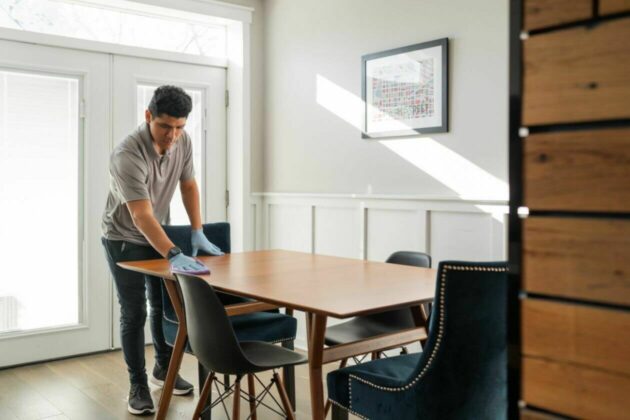
For many remote workers, a messy home is distracting.
You’re getting pulled into meetings, and your unread emails keep ticking up. But you can’t focus because pet hair tumbleweeds keep floating across the floor, your desk has a fine layer of dust and you keep your video off in meetings so no one sees the chaos behind you.
It’s no secret a dirty home is distracting and even adds stress to your life. And who has the energy to clean after work? That’s why it’s smart to enlist the help of professionals, like Well-Paid Maids.

Unlock Peace of Mind for Your Family! Join our FREE Estate Planning Webinar for Parents.
🗓️ Date: April 25, 2024
🕗 Time: 8:00 p.m.
PowerPoint Party in Adams Morgan
Make a funny PowerPoint, all the cool kids in DC are doing it!
Make a 5 minute or less PowerPoint presentation on whatever you want!• Defend your unpopular opinions!
NoMa Farmers Market at Third Street
The NoMa Farmers Market is returning for its third season in an exciting new location! This season, we’re expanding and relocating from Alethia Tanner Park to Third Street between N and M Streets NE at the nexus of NoMa and


